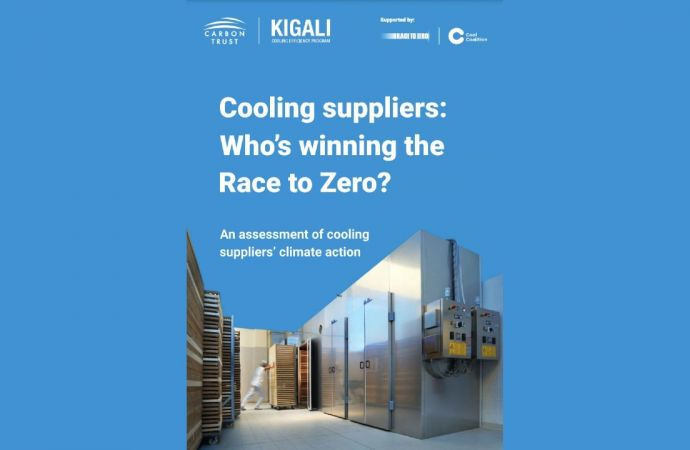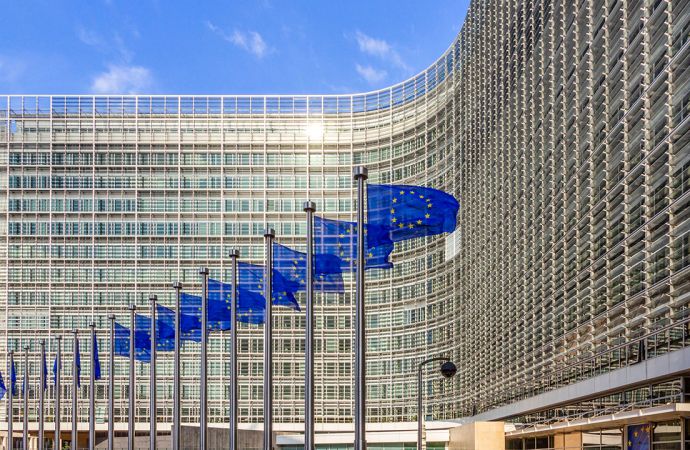hydrocarbons21.com reports on legislated and proposed policies supporting natural refrigerants by Seychelles, Mauritius and Mexico, as well as a novel approach to phasing-down HFCs internationally, as discussed during the HFC management workshop organised by UNEP on 11-12 July 2014 in Paris.

The HFC management workshop, which took place in Paris on the margins of the 34th meeting of the Open-Ended Working Group (OEWG) of the Parties to the Montreal Protocol on Substances that Deplete the Ozone Layer, dedicated a session to discussions about the policy aspects related to the management of HFCs.
Throughout the two-day workshop, the majority of participants conceded that policy should send a clear, strong and sustainable message to the industry in terms of HFC management.
Ms Klara Skacanova, Senior Analyst of shecco, participated in the panel discussion on policy issues, where she highlighted that early policy action is necessary to avoid phasing in HFCs where low-GWP refrigerants are available.
A novel approach for an international HFC phase-down deal
Chandra Bhushan, Deputy Director of the Centre for Science and Environment - a public interest research and advocacy organisation based in New Delhi, presented a policy proposal introducing a different approach for the way forward. Bhushan proposed to expand the existing HCFC phase out plan into a leapfrog deal for developing countries, while developed countries would be faced with a strict HFC phase down to open up the market for alternatives. His proposal put a strong emphasis on energy efficiency, not-in kind technologies and increasing funding requirements.
Seychelles to introduce 100% tax on HFCs as of 2015, opts for natural refrigerants
A similar policy approach to the one suggested by Bhushan has already been adopted by Seychelles, as presented during the policy session of the HFC management workshop. As of 1st January 2015, Seychelles will introduce zero tax and zero VAT on imports of natural refrigerants along with 100% tax on HFCs. Therefore, Seychelles combines an early HCFC phase-out while opting for low GWP refrigerants with a clear focus on naturals.
Legislative incentives for natural refrigerants in Mauritius
Mauritius, another small island state, adopted integrated leapfrogging to natural refrigerants driven by the interest alignment and the corresponding synergies amongst political will, institutional and legislative frameworks, as well as public and private partnerships. Amongst other measures, Mauritius introduced a quota system in combination with legislative incentives to promote the uptake of natural refrigerants, supported training schemes and targeted the sensitisation of both the general public and target groups. In terms of natural refrigerant demonstration projects, Mauritius already has trial installations of ammonia chillers, whilst CO2 demonstration projects for supermarket are in the pipeline.
Mexico taking steps to control HFCs
Mexico has also adopted a number of policies to control the increasing consumption of HFCs. By putting in place a “general law of climate change”, Mexico has created an institutional framework with the following 5 stages:
In terms of HFC management, the special programme of climate change for 2013-2018 aims to control the emission of high-GWP refrigerants by promoting HFC replacement projects while, in parallel, supporting the development of technology demonstration projects for the sectors of commercial air conditioners and domestic and commercial refrigeration, as well establishing a national inventory in terms of HFC consumption by substance and by sector. Mexico also supports NAMA projects for f-gases in domestic and commercial RAC.
Throughout the two-day workshop, the majority of participants conceded that policy should send a clear, strong and sustainable message to the industry in terms of HFC management.
Ms Klara Skacanova, Senior Analyst of shecco, participated in the panel discussion on policy issues, where she highlighted that early policy action is necessary to avoid phasing in HFCs where low-GWP refrigerants are available.
A novel approach for an international HFC phase-down deal
Chandra Bhushan, Deputy Director of the Centre for Science and Environment - a public interest research and advocacy organisation based in New Delhi, presented a policy proposal introducing a different approach for the way forward. Bhushan proposed to expand the existing HCFC phase out plan into a leapfrog deal for developing countries, while developed countries would be faced with a strict HFC phase down to open up the market for alternatives. His proposal put a strong emphasis on energy efficiency, not-in kind technologies and increasing funding requirements.
Seychelles to introduce 100% tax on HFCs as of 2015, opts for natural refrigerants
A similar policy approach to the one suggested by Bhushan has already been adopted by Seychelles, as presented during the policy session of the HFC management workshop. As of 1st January 2015, Seychelles will introduce zero tax and zero VAT on imports of natural refrigerants along with 100% tax on HFCs. Therefore, Seychelles combines an early HCFC phase-out while opting for low GWP refrigerants with a clear focus on naturals.
Legislative incentives for natural refrigerants in Mauritius
Mauritius, another small island state, adopted integrated leapfrogging to natural refrigerants driven by the interest alignment and the corresponding synergies amongst political will, institutional and legislative frameworks, as well as public and private partnerships. Amongst other measures, Mauritius introduced a quota system in combination with legislative incentives to promote the uptake of natural refrigerants, supported training schemes and targeted the sensitisation of both the general public and target groups. In terms of natural refrigerant demonstration projects, Mauritius already has trial installations of ammonia chillers, whilst CO2 demonstration projects for supermarket are in the pipeline.
Mexico taking steps to control HFCs
Mexico has also adopted a number of policies to control the increasing consumption of HFCs. By putting in place a “general law of climate change”, Mexico has created an institutional framework with the following 5 stages:
- planning
- finance
- instruments
- assessment
- law enforcement
In terms of HFC management, the special programme of climate change for 2013-2018 aims to control the emission of high-GWP refrigerants by promoting HFC replacement projects while, in parallel, supporting the development of technology demonstration projects for the sectors of commercial air conditioners and domestic and commercial refrigeration, as well establishing a national inventory in terms of HFC consumption by substance and by sector. Mexico also supports NAMA projects for f-gases in domestic and commercial RAC.
MORE INFORMATION
Related stories



